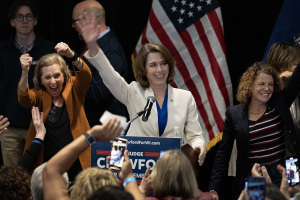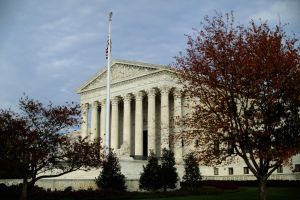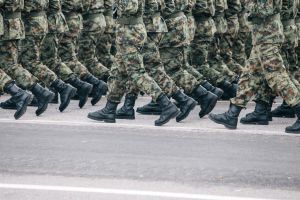Ill. Church Leaders Reject Gays Misrepresenting MLK's Legacy
Chicago pastors, ministers and political figures gathered at Freedom Baptist Church in Hillside, Ill., to establish Martin Luther King, Jr. as a man of God and a leader who fought for the civil rights of African-Americans.
At the same time, they made it clear that King was not a champion for gay rights.
The group, which largely consisted of African-Americans, gathered Monday to speak out and commune together at a luncheon. Most of the concerns shared were that of "deep concern" over legislation connecting gay rights to the civil rights movement – which helped secure voting rights and end the discrimination that was rampant in the south.
When asked if this is an appropriate way to spend the day, David E. Smith, executive director of Illinois Family Institute, declared, "I think it is a celebration for his legacy." To properly commemorate King, he stated, the public must also remember the role Christianity has played in his life.
King, born into a family of reverends, pursued theology studies at Crozer Theological Seminary in 1948 and Boston University in 1955. Following his ordination, King served as assistant pastor of Ebenezer Baptist Church, his father's. After finishing his doctoral studies at BU, he became the pastor of Dexter Avenue Baptist Church in Montgomery, Ala.
King accomplished all these things before he got involved in the fight for racial equality. As pastor of Dexter, he founded the Southern Christian Leadership Conference with three other ministers. King and others orchestrated civil right protests in Georgia and Alabama through the SCLC. In 1960, King returned to Ebenezer Baptist Church as co-pastor with his father until his death in 1968.
"Martin Luther King was first a minister of God," said Smith. As a minister, King wouldn't have supported immorality, he asserted.
Several gay rights leaders and proponents point to statements made by King's late wife, Coretta, to assert that he would have indeed proclaimed the plight of homosexuals as a civil rights issue. In fact, five years ago, Smith said, former Illinois Gov. Rod Blagojevich signed legislative protections for homosexuals in the state's civil rights laws on Martin Luther King Day.
Linda Jernigan, an IFI lobbyist and ministry leader, said many African-Americans find suggested connections between homosexuality and civil rights offensive.
The Rev. Al Cleveland, pastor of a Chicago church and luncheon attendee, shared similar sentiment.
"When we apply words to things that are as sacred as a movement to free a people – African-Americans – from the stigma of the color of their skin, and then apply that to what I call a lifestyle choice that wants to be made into a law, I find that very disheartening," he told CBS local television Channel 2.
As an ex-gay, Jernigan identified the difference between the two: one cannot choose his/ her skin color whereas homosexuality is a choice. Jernigan testified to living as a lesbian and transgender man for 20 years. That all changed when she became baptized. As she put on her ministry's website, she shaved her beard and began wearing women clothes again.
Jernigan told The Christian Post that she thought she was born gay but discovered after returning to church that she could choose to leave that life.
As an African-American, she said that most in her community disagree with homosexuality. "If you study and take a poll in the African-American community, we don't believe in homosexuality. We're deeply religious," she shared.
Though the African-Americans at the luncheon do not agree with homosexuality being a civil right, Jernigan said they are not trying to encourage hate or violence toward homosexuals.
"You are free to live in homosexuality if you choose, but we don't want laws promoting that lifestyle," she said.
Instead, Jernigan and other attendees want more people to remember King and their struggle as a race for equal rights as it happened historically.
"Don't connect this with us. Don't connect this to our struggle. It's not the same," she said.





























